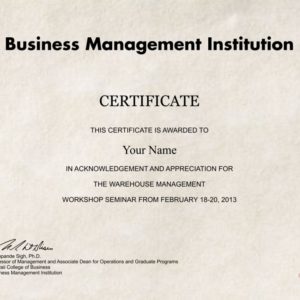Fake degrees are a billion-dollar business. The legal implications are unclear.
If universities are investigating claims of academic fraud, they generally put together a group of professors with the expertise in their field. Academic fraud is usually a complex and obscure area of research.
Legal Challenges
While the federal government has made efforts to put up storehouses of information on diploma mills and fake degrees but it’s left for states to regulate the practice. Even if a person doesn’t violate any law by boasting about their fake degree, it may put them at risk of legal liability using terms like lawyer, doctor or professional engineer that require a license.
Fake degrees can be a source of trouble because they undermine the credibility of legitimate degrees that people have invested decades and tens of thousands of pounds earning. Fake degrees pose an issue for the general public as they permit professionals like medical professionals and engineers to be hired with no qualifications or education.
Certain companies offer fake degrees that appear real. They typically offer a variety of a degree and university, and some can be created in just five days. Others claim to be able to award degrees in accordance with an applicant’s personal experience or past work. This can pose a risk to the general public, since it can lead to fraudulent credentials being awarded in fields that can pose dangers to health or safety.
Academic Fraud Prosecution
In the literature on academic fraud, it is assumed that cheating is commonplace and is made more difficult because of the ease in that cheating can be carried out online. Most people also believe that students take an instrumental approach to their education and will take any action necessary to earn the best grade.
Instructors need to know how to deal with accusations of academic dishonesty. It is essential that instructors understand how to respond to accusations of academic dishonesty.
The procedure must be designed in a way that any investigation of charges will be conducted impartially by a team of experts with expertise in the field of study of the task being examined, who have no affiliation with the accused. If the Standing Committee deems it necessary, the Standing Committee can appoint individuals from outside the University as members of the panel. This is to avoid conflicts of interest where the investigation process and the resulting charges are biased towards the student being investigated.

Jurisdictional Questions
Diploma mills offer phony degrees to those willing to pay. Some of these are even based in the United States.
Apart from being a violation of federal law, using fraudulent degrees is usually a state crime as well. For instance, it’s unlawful in many states to fraudulently claim a degree that qualifies someone for a position that requires a license. Human resource professionals typically conduct background checks, which include checks of educational credentials.
Internet fraudsters make a lot of money selling fake transcripts as well as degrees and other documents. Experts believe that fraudsters have become more sophisticated.
Eaton points out that it is difficult to create a blacklist of fake diploma mills and schools since fraudulent actors are able to modify their domain names and names on the Internet. Employers should use an accredited education agency to check credentials rather than. The Oregon Office of Degree Authorization is one example. It maintains an inventory of accredited colleges and universities within the state. It also conducts investigations into suspected cases of degree fraud and verifies transcripts.
Legislation on Fake Degrees
It is evident that more legal instruments are needed to combat fake degrees. Verifile is a website that provides details about fake universities as well as accreditation organizations, argues that states with “promiscuous laws regarding education could be a magnet for fake degrees sellers. Verifile says that each time a high-profile case is reported there are plenty of everyday individuals who also have fake degrees. The Seattle sheriff’s deputy who acquired a fake degree from a college to get a 2 percent raise is just one case. So are the enlisted military officers who bought diplomas from an unaccredited school in Spokane, Washington and see this site https://lambang247.pro/.
Ezell believes that state and federal authorities should consider making it illegal to use fake diplomas in order to gain employment or join any profession that requires licensure. This should also put a spotlight on diploma mills that according to him will be unable to be a target than bogus credit card and mortgage businesses. He also says that individuals as well as professional organizations and the police departments are all required to share the responsibility to stop academic fraud.